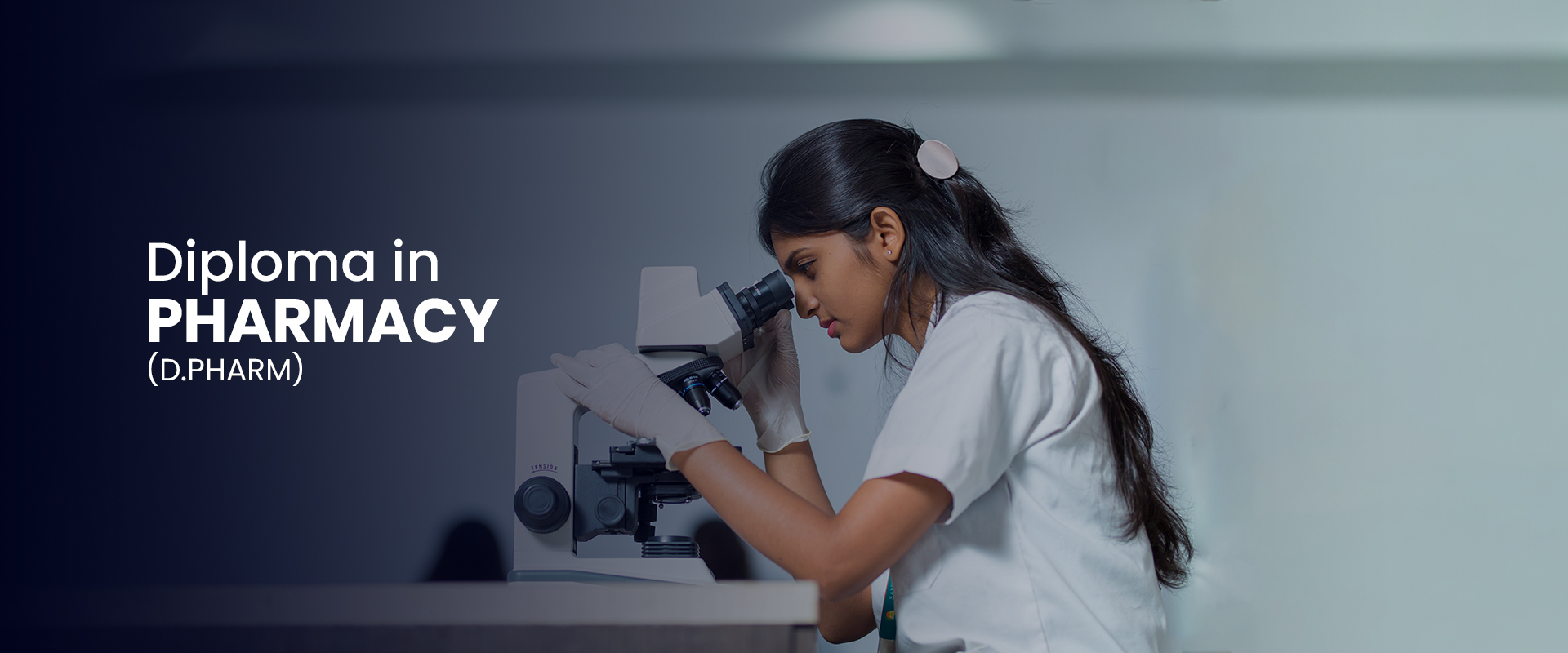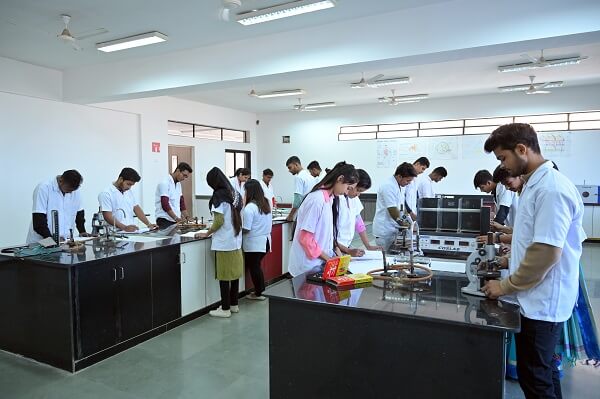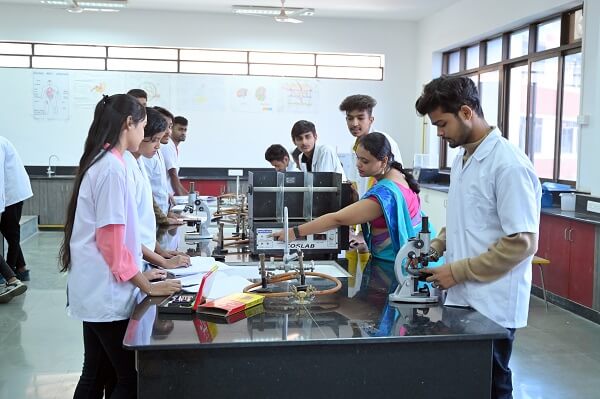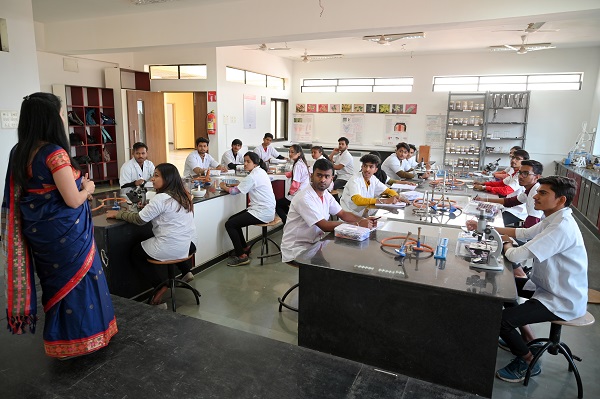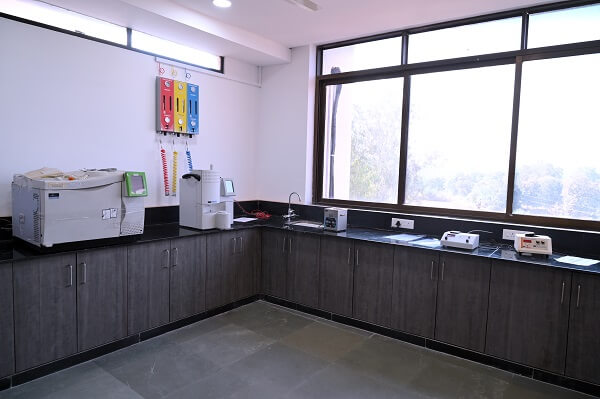About D.Pharm
Career Opportunities in D.Pharm

Pharmacy Clerk
Pharmacists have many responsibilities, such as filling prescriptions for customers, completing checkout transactions, and updating patient records.

Pharmacy Dispenser
A pharmacy dispenser assists with prescription preparation and dispensing, assist with inventory management, ordering and pharmacy replenishment. Sole responsibility for the operation of the pharmacy and junior staff as required.

Pharmacy Assistant
A pharmacy assistant assists the pharmacist by handling all the necessary paperwork to ensure that the pharmacy is operating efficiently.

Pharmacy Technician
Pharmacy technician assist pharmacists with inventory, labeling, record keeping, prescription processing, and other tasks as needed
Fee Structure & Eligibility
| Programme | Sem | Year | Mode | Eligibility | Academic Fees Per Year (INR) |
Special Fees (Incl. Library Fee & Examination Fees) Per Year (INR) |
Fees Per Year |
|---|---|---|---|---|---|---|---|
SCHOOL OF PHARMACEUTICAL SCIENCE (DIPLOMA) |
|||||||
| D.Pharm | - | 2 Years | Annual | Passed 10+2 examination with Physics and Chemistry as compulsory subjects along with Mathematics/ Biology subject. | Rs. 80,000 /- | Rs. 5,000 /- | Rs.85,000/- |
Note:
- Admission Form and Prospectus Rs. 1000/- (One Time).
- Caution Money Rs. 1000/-
- Hostel Fees Rs. 1,10,000/- per annum + 5000 (Deposit Rs 5, 000 at the time of Admission only on refundable basis) Minimum 4 Occupancy
- Transportation Fees as applicable based on Route and Pick Up Point.
- Uniform Cost Rs. 6000/-

